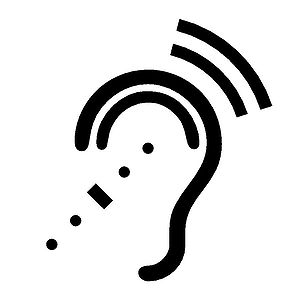Court ruling may have implications for theatre owners, managers and producers
The Case of Feldman v. Pro Football, Inc. __ F.3d __, Nos. 09-1021, 09-1023, decided on March 25th, 2011 isn't, strictly speaking, an entertainment law case, but it could have implications for clients in the theatre business, who struggle with decisions about how to accommodate patrons with disabilities.
(The Court's opinion can be found here)
The Feldman case was brought by Washington Redskins fans with hearing impairments against the management of the team and of the venue (FedEx Field), where home-games are played.
Specifically, the plaintiffs claimed that they couldn't benefit from assistive listening devices provided by the venue, and demanded that the information conveyed via the stadium's public address system, and jumbotron monitors also be made available using a captioning system.
The Maryland District Court made several procedural rulings in the Plaintiff's favor, and on appeal, the 4th Circuit agreed.
In its ruling, the Appeals court stated that, interpreting Title III of the Civil Rights Act and the ADA narrowly, auxiliary aids beyond the usual Assistive Listening Devices ARE required to convey game-related information, emergency and public address announcements, and the words to music and other entertainment broadcast over the PA system.
“A place of public accommodation violates Title III if it fails to provide auxiliary aids and services –which may be nexessary to ensure effective communication for individuals with disabilities — unless it can demonstrate that taking such steps would fundamentally lather the nature of the goods, services, facilities, privileges or would result in an undue burden” 42 U.S.C. Section 12182(b)(2)(A)(iii); 28 C.F.R. Section 36.303(c).
Implications for Theatres
What this means for theatre owners, operators, managers, and producers is that (in the 4th Circuit, at least) captioning (or some other form of auxiliary aid) is now a requirement, in addition to assistive listening devices for deaf and hearing impaired patrons.
The Feldman vs. Pro Football Court left open to the defendants the choice of which auxiliary aids it would make available. FedEx Field opted to provide emailed lyric sheets for songs played over the PA system at Redskin games upon request. Other information is provided via captioning in the stadium.
While it may be possible to distinguish some theaters from venues like FedEx Stadium, they are, nonetheless considered ‘public accommodations', and the law will apply to venues of all types and sizes. What's open to interpretation are the definitions of “effective communication”, “full and equal enjoyment”, and what is an “undue burden”.
As I have previously discussed on this blog, many theaters already provide sign language interpretation for specified performances. Whether this is sufficient is, for now, an open question. The option of providing a script or libretto to deaf theatregoers is really not viable, due to copyright and licensing concerns, as well as the fundamental impact that could have on the theatregoing experience for both the affected patrons and those around them.
Essentially, the determination of which form of auxiliary aid to provide must be taken in each a particular instance. So, the advice of an experienced and knowledgeable entertainment lawyer is invaluable.



@chbidmead because FF uses a web form, but iPhone apps have to use the Twitter API.
I’ve just read an interesting article about captioning for the hearing-impaired in the live theatre.
Captioned Theatre – Deafness
http://www.bellaonline.com/articles/art172648.asp
Wouldn’t the next logical step be to require descriptive video for the blind and people who are sight impaired? I would love to hear and/or see that discussed?